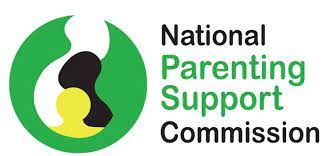Discipline is a process parents use to teach their child how to behave, so that they develop self-discipline, and keep doing these behaviours whether or not parents are around. The outcome of discipline should be that the child develops an ability to think and to choose positive, acceptable behaviours. Parents have many different ways to instill discipline, but children should not be harmed, frightened, or angered by the way they are disciplined.
Some steps to enable a child to achieve self-discipline include:
- Set the tone yourself: Home should be a place where positive and acceptable behaviour is demonstrated so children learn from examples set in this environment. Parents (and other adults in the home) teach by example, as well as in discussions with their children, so children learn what behaviours are of them.
- Pay attention to, and encourage acceptable/positive behaviours using simple rewards. Praise, high-fives, hugs linked to the behaviour as well as simple treats are good enough. Parents should be careful, however not to bribe their children.
- Use a loving and firm parenting style, balancing control and warmth. Ensure the family spends positive bonding time together. This gives each child a sense of security, and the knowledge that they belong and are loved.
- Ensure the family spends positive time together. This gives each child a sense of security, and the knowledge that each belongs and is loved.
- Children as they grow older should contribute to discussion and decisions about family rules and the consequences of breaking these rules. This will help them understand the reasons for the rules and be more likely to follow them.
BRIBE
Examples:
“If you eat all your lunch, you will get candy.”
This can make child expect this after every meal.
REWARD
“Your math grade moved from 30% to 40% this term! Your hard work is beginning to show good results. High five! I am so proud of you.”
“I notice you have done your homework on time all this week. This makes me feel so happy – guess what, we will get some ice cream to celebrate.”
Here the child gets unexpected rewards, and knows his behaviour is being noticed and appreciated. This encourages the child to continue the behaviour.
- Target and discourage unacceptable behaviour with appropriate and reasonable consequences, in order to reduce and stop the behaviour over time.
- Your goal is to change the behaviour, to help the child get back on track with building self-discipline.
- Get to know your children–habits, likes, dislikes–how they are likely to behave. If behaviour becomes way beyond the usual unacceptable behaviour, then you know something is wrong, and you may need help if your efforts are not working.
- Use a calm tone, not shouting in anger, but firm enough for your child to understand how serious you are.
- If you are angry, you might punish with harshness and could harm the child or others. Wait, calm down, stop and think.
- Be careful not to use the same consequence for everything the child does wrong.
- Some examples of common negative behaviour and reasonable consequences:
- Telling lies: be a role model who is truthful; discuss with the child the reasons why telling lies is bad; establish the reason why the child is lying; let the child know it is always OK and safe to tell the truth, even when they might have done something wrong.
- Stealing: Ensure the home environment does not show the child any example of agreement with stealing. Also ensure that the child is taught why stealing is wrong, and returns any stolen item to the rightful owner, preferably with an apology with parents or an adult from the home present. Take away a prized possession from the child [for a period] so he/she understands what it means to lose something of value.
- Removal of privileges, extra chores, apologies to anyone who has been wronged, are appropriate consequences.
The NPSC supports age-appropriate discipline. It is always important to match the disciplinary approach to the child’s age. Children will respond to certain methods more readily at certain developmental stages than at others.
- Target and discourage unacceptable behaviour with appropriate and reasonable consequences, in order to reduce and stop the behaviour over time.
The NPSC supports positive parenting behaviours. However, it is always important to match the disciplinary approach to the child’s age. Children will respond to certain methods more readily at certain developmental stages than at others.
Ages: 3 – 5
At this stage the brain is developed enough to process more information which results in increased physical coordination, so:
- As the child’s verbal abilities increase, you can explain more things to the child. Keep in mind that young children may not always understand the complete meaning of words. Use concrete, real-life examples to help children understand.
- The child still requires repetition to remember things so it is important to be patient and willing to repeat things.
- Pay attention to what your child is trying to say, as at this stage they are still learning to use appropriate words to describe their feelings.
- At this age, a “time out”, or taking a break somewhere else to calm down might be appropriate.
- Ensure you are building a good relationship with your child; remember they are learning a lot as the brain size rapidly increases, and both positive and negative experiences in the home will have an impact on their feelings and behaviour.
Ages: 6 – 8
Physical development slows during this period:
- Continue to have a reliable routine and consistent expectations.
- Continue building a good relationship with your child in which there is parental example, trust, respect, and effective communication. Listen to your children. Remember they are learning a lot formally and informally, and both positive and negative experiences in the home will have an impact on their feelings and behaviour.
- Share with your children why you have the rules that you do. Your child can now understand the importance of consequences for inappropriate behaviour.
- Losing privileges is an appropriate consequence at this stage.
Ages: 9 -12
- Children can now have an input into what the family rules are.
- Children can now handle some basic responsibilities around the house. They can also be allowed to make more basic choices for themselves as they grow older.
- Your child can now contribute to family meetings to discuss family business, and should be listened to.
- Continue building a good relationship with your child in which there is parental example, trust, respect, and effective communication.
Ages: 13 and up
At this age, children are more physically and socially developed. There are a lot of physical and emotional changes going on which affect how they think and their growing independence.
- Although their peers are becoming a strong influence in their lives, they still need you for foundational guidance. Continue building a good relationship with your child in which there is parental example, truth, trust, respect, and effective communication.
- Parents can continue having consistent rules and consequences, with respect for their adolescent’s ability to make her or his own choices.
- The adolescents will now have opportunities to experience natural consequences for actions.



